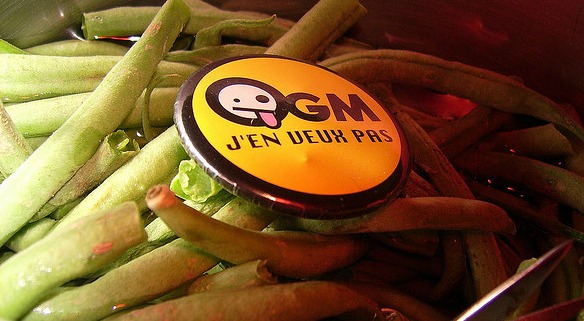
MINNEAPOLIS — A coalition of scientists warns there is no consensus on the safety of genetically-modified organisms, and more long-term research must be done on individual modified crops. Their message stands in sharp contrast to the idea, popular in the mainstream media, that GMO safety is universally accepted by science.
“Fears, Not Facts, Support G.M.O.-Free Food,” reads the headline of an editorial by Jane E. Brody, published Monday in The New York Times. Brody argues that science supports the use of modern genetically-engineered plants, and that opponents are working from a place of emotion, not fact. “The anti-G.M.O. movement, I’m afraid, risks throwing the baby out with the bathwater,” argues Brody.
Similarly, Steven Savage, writing last month for Forbes, called the anti-GMO movement “superstition.” “Although all of the major scientific bodies around the world have affirmed the safety of ‘GMO crops,’ the fear-based messaging has worked,” he wrote.
In January, the Pew Research Center compared the attitude of the American public toward science with the responses of members of the American Association for the Advancement of Science. While 88 percent of scientists said they consider GM foods generally safe to eat, only 37 percent of Americans reported the same sentiment. This was the largest divergence of opinion between the two groups found anywhere in the poll.
Over 300 scientists have endorsed the original ENSSER statement, which “clearly demonstrates that the claimed consensus on GMO safety does not exist outside of the above depicted internal circle of stakeholders,”
Meanwhile, hundreds of scientists have signed an open letter from the European Network of Scientists for Social and Environmental Responsibility (ENSSER) that warns there is “no scientific consensus on GMO safety.” Originally issued in October 2013, the statement was republished in January by the open access scientific journal Environmental Sciences Europe. The letter was jointly written by over a dozen scientists from throughout Europe and a variety of scientific fields.
The authors argue that the idea of universal consensus on the safety of GMO crops is a myth created by a small group of “stakeholders,” such as scientists funded by the agribusiness industry, claiming there’s been “a concerted effort by genetically modified (GM) seed developers and some scientists, commentators, and journalists to construct claims that there is a ‘scientific consensus’ on GMO safety and that the debate on this topic is ‘over.’”
Over 300 scientists have endorsed the original ENSSER statement, which “clearly demonstrates that the claimed consensus on GMO safety does not exist outside of the above depicted internal circle of stakeholders,” write the authors, further nothing: “The health, environment, and agriculture authorities of most nations recognize publicly that no blanket statement about the safety of all GMOs is possible and that they must be assessed on a ‘case-by-case’ basis.”
Dozens of countries already require GMO-labelling on food, and officials of both the European Union and the French government have called for more research into GMO safety.
While Brody concedes that, “A legitimate safety concern involves possible delayed deleterious effects of genetically modified products on consumers, the environment or the ‘balance’ of nature,” the authors of the open letter warn that almost no studies are being done into these long-term effects:
“[N]o epidemiological studies in human populations have been carried out to establish whether there are any health effects associated with GM food consumption. As GM foods and other products are not monitored or labelled after release in North America, a major producer and consumer of GM crops, it is scientifically impossible to trace, let alone study, patterns of consumption and their impacts.”
Consumer concerns over these potential impacts have led to growing support for GMO-labelling in the United States, with Whole Foods Market recently promising to label all GMO ingredients by 2018. Although there are still no plans for a federal GMO-labelling program, the USDA announced a new program in May to allow voluntary labelling of GMO-free products.
Yet a few parts of the U.S. are trying to go beyond labeling. A total ban on GMO crops went into effect in Oregon’s Jackson County on Saturday, but it’s unclear whether the ban is even enforceable.
“More than a year after two-thirds of voters decided to oust GMOs, supporters and opponents alike are asking the same question: Now what?” wrote the Oregonian’s Jacy Marmaduke.

